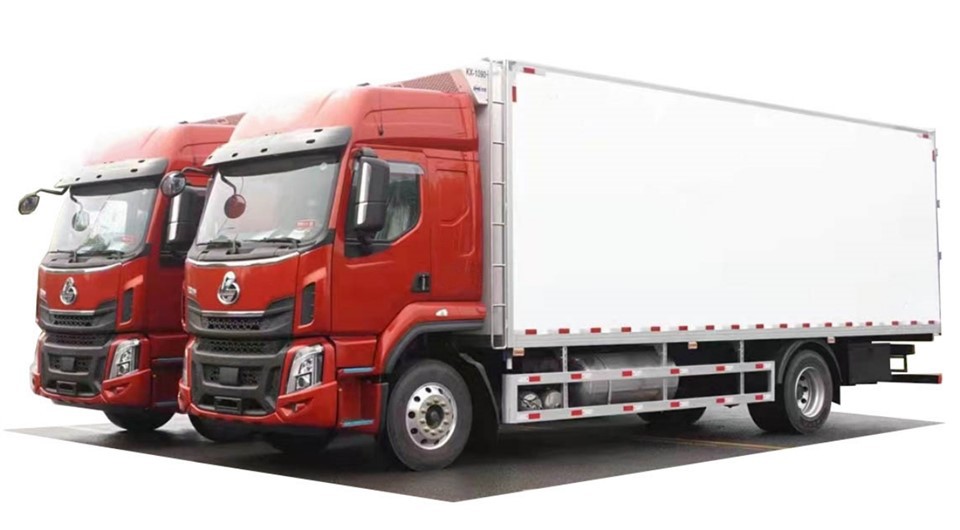Purchasing a used fuel truck is a significant investment for any business, and making the right choice can greatly impact operational efficiency. Fuel trucks are essential for transporting fuel to various locations, including construction sites, remote areas, and military operations. In this article, we will explore everything you need to know about buying a used fuel truck, from identifying your needs to understanding the components that matter most. Whether you’re a small business owner or a fleet manager, this guide will help you make an informed decision.
Understanding the Basics of Fuel Trucks
What is a Fuel Truck?
A fuel truck is specifically designed for transporting fuel, such as gasoline, diesel, and other petroleum products. These trucks are equipped with specialized tanks and pumps to ensure safe and efficient fuel delivery.
Types of Fuel Trucks
Fuel trucks come in various sizes and configurations. Here are some common types:
- Bulk Fuel Trucks: Large trucks that carry significant amounts of fuel, typically used by fuel supply companies.
- Specialty Fuel Trucks: Designed for specific industries, such as aviation or military.
- Mini Fuel Trucks: Smaller trucks suitable for businesses that need to transport fuel in limited quantities.
Why Invest in a Used Fuel Truck?
Cost-Effectiveness
Purchasing a used fuel truck can save you significant amounts of money compared to buying a new one. Used trucks often have a lower price point and can still provide reliable service.
Depreciation Benefits
New trucks depreciate quickly; however, used fuel trucks have already undergone most of their depreciation. This means you can get a better return on your investment over time.
Availability of Diverse Models
The used market provides access to a wide variety of makes and models. This allows you to find a truck that fits your specific operational needs.
Key Considerations When Buying a Used Fuel Truck
Identifying Your Needs
Before you begin shopping for a used fuel truck, assess your business needs:
Capacity Requirements
Consider how much fuel you need to transport on average. Fuel trucks are available in various capacities, and choosing the right size is crucial for operational efficiency.
Distance and Terrain
Evaluate the distance and types of terrain you will be covering. If you frequently navigate rough terrains, a durable truck with off-road capabilities might be necessary.
Inspecting the Truck
Proper inspection is vital when buying a used fuel truck. Look for the following:
Tank Condition
The fuel tank should be in good condition without rust or leaks. Inspect the tank’s surface and welding joints for any signs of deterioration.
Engine Performance
An engine’s condition directly impacts a truck’s reliability. Consider a professional mechanic’s assessment to evaluate performance accurately.
Regulatory Compliance
Ensure the truck complies with local regulations concerning fuel transportation, including emissions standards and safety requirements.
Finding Reputable Sellers
Not all sellers are created equal. Consider the following:
Dealerships vs. Private Sales
Purchasing from a dealership can often provide more security and warranties. In contrast, private sales may offer better deals but come with higher risks.
Checking Seller Reputation
Research the seller’s reputation online, read customer reviews, and seek feedback from other buyers to gauge trustworthiness.
Popular Models of Used Fuel Trucks
Freightliner M2 106 Fuel Truck
The Freightliner M2 106 is a popular choice for fuel transportation due to its reliability and strong performance. Features include:
- Capacity: Up to 3,500 gallons
- Engine: Cummins ISB 6.7L
Kenworth T270 Fuel Truck
The Kenworth T270 is well-known for its durability and efficiency in fuel delivery. Key features include:
- Capacity: Up to 2,500 gallons
- Engine: PACCAR PX-7
International WorkStar 7600 Fuel Truck
The International WorkStar 7600 is ideal for heavy-duty jobs and offers great hauling capacity. Main features include:
- Capacity: Up to 4,000 gallons
- Engine: MaxxForce 9
Financing Options for Your Used Fuel Truck
Traditional Loans
Most banks offer loans specifically for vehicle purchases. These loans usually require a down payment and come with fixed interest rates.
Financing through Dealers
Some dealerships offer in-house financing, allowing you to make monthly payments rather than purchasing outright. This option ensures you can budget efficiently.
Leasing Options
Leasing a used fuel truck can provide flexibility, especially if your needs might change in the future. Leasing ensures low upfront costs and regular vehicle updates.
Maintenance Tips for Your Used Fuel Truck
Regular Inspections
Perform regular inspections of essential components, including brakes, tires, and the fuel system.
Oil Changes
Maintaining appropriate oil levels and changing the oil regularly will extend the life of your engine.
Fuel Quality Monitoring
Always monitor fuel quality to prevent contamination in the tank. This extends the life of the fuel system and ensures optimal performance.
Understanding Regulatory Compliance for Fuel Trucks
Local and Federal Regulations
Understanding regulations impacting fuel transportation is crucial. Familiarize yourself with both local and federal laws governing fuel trucks.
Safety Standards
Your used fuel truck must meet safety standards for the transportation of hazardous materials. Compliance helps avoid potential fines and ensures driver safety.
Frequently Asked Questions (FAQ)
What should I check when inspecting a used fuel truck?
During inspection, check the condition of the tank, engine performance, brakes, tires, and ensure that the truck meets safety regulations.
Are there financing options for used fuel trucks?
Yes, you can explore traditional loans, dealership financing, or leasing options suited to your financial needs.
How can I assess the value of a used fuel truck?
Research similar models in your area, consider mileage, fuel capacity, age, and overall condition to assess its value accurately.
What are the common brands of used fuel trucks?
Popular brands include Freightliner, Kenworth, International, and Peterbilt, each known for their reliability and performance.
Is it worth buying a used fuel truck?
Yes, buying a used fuel truck can be a cost-effective decision, offering significant savings and opportunities for various operational needs.
How often should I service my used fuel truck?
Regular servicing is recommended every 5,000 to 7,500 miles or according to the manufacturer’s guidelines to ensure optimal performance.





